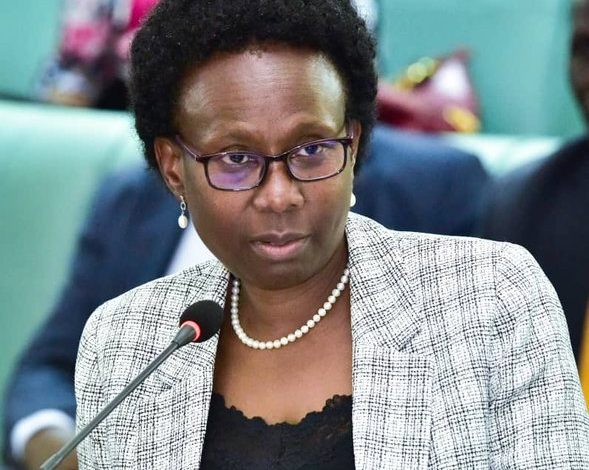Gov’t faces vaccine hesitancy in battle against monkey pox outbreak
Declared a global health emergency by the World Health Organization (WHO), monkeypox, a virus related to the eradicated smallpox, is primarily transmitted to humans from wild animals like monkeys and squirrels.

As Uganda ramps up efforts to prevent a potential outbreak of monkeypox, Health Minister Dr. Jane Ruth Aceng has urged the public to embrace vaccination, emphasizing that vaccines are developed to protect, not harm.
During a parliamentary session on Thursday 15 August, 2024, Dr. Aceng updated lawmakers on the government’s measures to combat the spread of the virus, revealing that two cases have been confirmed in Kasese District within the past month.
The Minister announced plans to vaccinate residents in 17 districts bordering the Democratic Republic of Congo (DRC), where 14,000 cases of monkeypox have been reported. She expressed concern over vaccine hesitancy, fueled by fears stemming from the COVID-19 pandemic, and warned that such skepticism could undermine efforts to control epidemics.
“Uganda has 13 vaccines, and malaria will be the 14th. In some countries, like the U.S., they have over 50 vaccines. If we had more, we wouldn’t be dealing with issues like the flu. Let us embrace vaccines,” Dr. Aceng stated. She attributed the rise in non-communicable diseases to poor lifestyle choices rather than vaccines, noting that 25% of Ugandans suffer from high blood pressure.
“We are sitting on a time bomb of non-communicable diseases. It’s not about vaccines but our lifestyle,” she warned.
Monkeypox Overview
Declared a global health emergency by the World Health Organization (WHO), monkeypox, a virus related to the eradicated smallpox, is primarily transmitted to humans from wild animals like monkeys and squirrels.
The virus can spread among humans through direct contact, sexual intercourse, or contaminated surfaces. Since the beginning of this year, 17,000 cases and over 500 deaths have been reported across 13 African countries, with the DRC accounting for 96% of the cases.
Dr. Aceng highlighted the importance of public awareness, urging the population to avoid handshakes, practice frequent hand washing, and steer clear of crowded places. She emphasized that while the two cases in Kasese have recovered, the disease can be fatal, particularly for children under 15, pregnant women, and those with compromised immunity.”
In addition, the public health implications can be dire for the communities and individuals affected. If robust interventions are not made, infections may spread and overwhelm health systems as seen elsewhere,” the Minister cautioned.
Lawmakers raised concerns about the border districts, urging the government to intensify sensitization efforts in these areas, especially given the influx of refugees from the conflict-ridden eastern DRC.
Kira Municipality MP, Ibrahim Ssemujju Nganda, called for stricter surveillance at border crossings, while Betty Nambooze, MP for Mukono Municipality, stressed the need for public adherence to health measures, including reducing physical contact.
MPs also called for the reinstatement of the budget for 77 ambulances, which had been reallocated to Roko Construction Company, arguing that the current health crisis necessitates such services.
Dr. Abed Bwanika, MP for Kimanya-Kabonera, urged the Ministry of Tourism to enforce safe distances between wildlife and tourists to prevent virus transmission, and recommended stringent regulations for Ugandans keeping wildlife as pets.
In response, Dr. Aceng assured the legislators that screening at border posts remains vigilant, but stated that the government would not impose restrictions on movement as a preventive measure against monkeypox.







